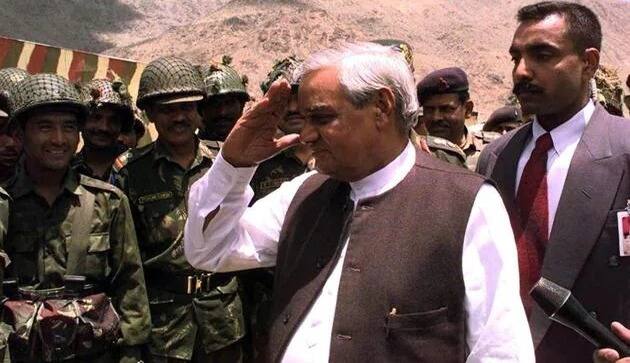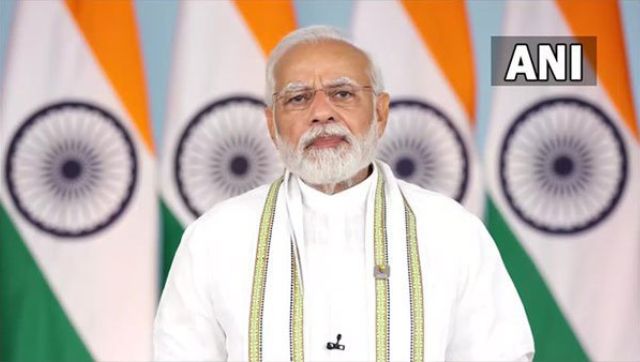The release of two papers — from the World Bank and the International Monetary Fund (IMF) respectively — has once again brought the poverty debate into the limelight. The two papers have claimed that extreme poverty in India has declined substantially. The World Bank paper, using the Consumer Pyramid Household Surveys (CPHS) data, has put it at 10.2 percent (2019). The IMF paper, however, calculates poverty by using the National Statistical Organisation’s Consumer Expenditure Survey as base and adjusting it for direct effect of massive food grain subsidy given under the National Food Security Act (NFSA) 2013 and the PM Garib Kalyan Anna Yojana (PMGKAY) during the pandemic period, and claims that extreme poverty has almost vanished at 0.77 per cent (2019) and 0.86 per cent (2020). Another estimate of poverty by NITI Aayog — the Multidimensional Poverty Index (MPI) — has put Indian poverty at 25 per cent in 2015 based on National Family Health Survey data. This MPI is calculated using twelve key components from areas such as health and nutrition, education and standard of living. By 2019-20, it was expected that MPI would further decline as the access to health, education and other basic facilities significantly improved amongst poor, especially after 2015. One can debate whether the poverty line at $1.9 PPP is too low and needs to be revised upward to $3.2 PPP. The IMF paper also reports poverty based on $3.2 PPP at 14.8 per cent (2019) including food transfers, while the World Bank paper estimated it to be 44.9 per cent. Irrespective of whether extreme poverty is below 1 per cent, or 10 per cent or 25 per cent, and whether food transfers played positive role in reducing poverty, a critical question that arises is: Why is there still a need to distribute nearly free food to 800 million people in the name of food security? Is this a prudent policy or politics of freebies for votes? We know that the offtake of grains under NFSA in FY20 was 56.1 million metric tonnes (MMT). Following the outbreak of Covid-19, the government launched PMGKAY as a special Covid-relief scheme in April 2020, to distribute 25 kg of cereals per family per month in addition to food transfers under NFSA. The scheme was justified to help migrant workers. That catapulted the offtake to 87.5 MMT (under PMGKAY & NFSA) in FY21. But despite the ebbing of Covid 19, the scheme was continued in FY22, and the grain offtake touched 93.2 MMT. And now, in FY23, when the economy has largely bounced back, a further extension of free food on top of NFSA allocations was uncalled for. This will strain the fisc, reduce public investments and potential job creation. The public grain management system is crying out for reforms, and this is the right time for the Modi government to fix it. A look at the size of food freebies will help understand the gravity of this problem. As on 1 April 2022, the Food Corporation of India (FCI) had stocks of wheat and rice at 74 MMT, against a buffer stock norm of 21 MMT, implying an excess of 53 MMT. Economic cost of rice, as given by the FCI, is Rs 37,267.6/tonne, and that of wheat is Rs 12,6838.4/tonne (2020-21), yielding the value of excessive stock at Rs 1.85 trillion. This is despite the fact that in FY21 and FY22, a total of 72.2 MMT of grains were distributed free under the PMGKAY. It only speaks of highly inefficient grain management system. All this results in a ballooning food subsidy, which spiked to Rs 5.41+ trillion in FY21, as the arrears of the FCI were also cleared. In FY22, it came down to Rs 2.86 trillion, and, in the FY23 Union budget, it is provisioned at Rs 2.06 trillion; but this is likely to go beyond Rs 2.8 trillion with the continued distribution of free food under the PMGKAY. This would amount to more than 10 per cent of the Centre’s net tax revenue (after deducting states’ share). Given this level of freebies on just one item, the big question that arises is: Can it be a sustainable path towards poverty alleviation? Strategic thinking on economic policies tells us that it is better to teach a person how to catch a fish than giving him/her a free fish every day. Crumbs cannot inspire a society for growth. It is all the more important to change the current policy of free food, especially given the massive leakages. As per the High-Level Committee on restructuring FCI, leakages were more than 40 per cent based on NSSO data of 2011. Ground reports suggest that these leakages still hover around 30 per cent or so. In reforming this system of free food, wisdom lies in going back to Atal Bihari Vajpayee’s vision, who introduced the Antyodaya Anna Yojana (AAY), wherein, the ‘antyodaya’ households (most-poor category) get greater rations (35 kg per household) at higher subsidy (say, rice at Rs 3/kg and wheat at Rs 2/kg). For the remaining below poverty line (BPL) families, price charged was 50 per cent of the procurement price, and for above poverty line families (APL), it was 90 per cent of the procurement price. Though, there could be some problems in identifying the poor, technology can help. This will make PDS more targeted and cost saving. This should be combined with the option of receiving cash instead of grains by the targeted beneficiaries. [caption id=“attachment_10959301” align=“alignnone” width=“630”]  Kargil indeed calls for a celebration for not just winning a military conflict but also establishing Indian finesse in modern warfare and diplomacy. AP[/caption] The savings so generated can be ploughed back into investments in agri-R&D, rural infrastructure (irrigation, roads, markets, etc) and innovations, which will help create more jobs and reduce poverty on a sustainable basis. Can the Modi government bite the bullet and emulate Vajpayee on using scarce resources more wisely? Only time will tell. Ashok Gulati is Infosys chair professor for agriculture, and Ritika Juneja is consultant, Icrier. Views expressed are personal. Read all the Latest News , Trending News , Cricket News , Bollywood News , India News and Entertainment News here. Follow us on Facebook, Twitter and Instagram.
Strategic thinking on economic policies tells us that it is better to teach a person how to catch a fish than giving him/her a free fish every day
Advertisement
End of Article


)

)
)
)
)
)
)
)
)



